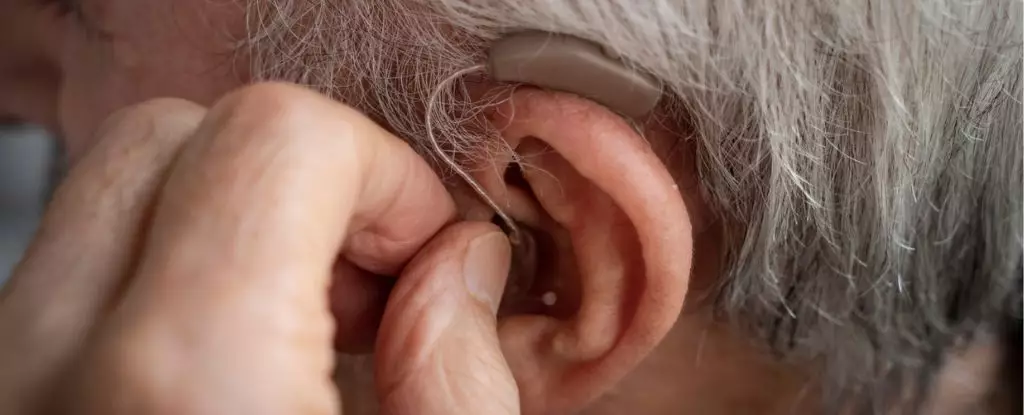Emerging research has illuminated a striking connection between hearing loss and the likelihood of developing Parkinson’s disease. A recent comprehensive study involving over 3.5 million American veterans revealed that individuals suffering from hearing impairments may face a delayed Parkinson’s diagnosis, with the risk sharply increasing in correlation with both the severity and duration of hearing loss. These findings provoke essential considerations for early intervention strategies and advocate for the integration of hearing health into broader neurological health assessments.
The pivotal takeaway from this research is the observed protective effect of hearing aids. For veterans who utilized hearing aids promptly upon experiencing hearing loss, the study recorded a significant decline in the risk of later Parkinson’s diagnosis. This reinforces the notion that timely audiological intervention could serve as a vital, low-cost strategy in neurodegenerative disease prevention. In addition to supporting auditory functions, hearing aids may contribute to maintaining cognitive vitality, a hypothesis bolstered by previous studies that linked the use of hearing aids to reduced rates of cognitive decline.
Parkinson’s disease is often associated with a decline in cognitive abilities, similar to conditions affecting memory, such as dementia. As the severity of cognitive decline can escalate with age, particular attention is warranted for those exhibiting initial symptoms related to hearing loss. The 2022 systematic review highlighted that hearing-impaired individuals utilizing hearing aids had a 19% reduced likelihood of cognitive decline compared to their counterparts without aids. Furthermore, a recent landmark trial indicated that hearing aids could potentially decelerate cognitive decline by almost 50% in certain older adults, shining a light on their broader neurological implications.
The significant study led by researchers, including neurologist Lee Neilsen from Oregon Health and Science University, focused on a cohort predominantly made up of middle-aged white male veterans. The long-term tracking over two decades yielded compelling evidence linking mild to profound hearing loss to an increased incidence of Parkinson’s disease. Notably, the findings indicated that participants with even mild hearing impairments, common in individuals around their 60s, exhibited heightened risk levels over 5, 10, 15, and 20 years. For every 10,000 individuals with mild hearing loss, there were an additional ten diagnosed with Parkinson’s after two decades.
While the study provides robust data advocating for hearing promptness, it leaves several questions unanswered regarding the underlying mechanisms at play. One possibility is that hearing aids might restore vital neural connections or alleviate cognitive strain, akin to how physical exercise benefits muscle health. Alternatively, improved auditory function may enhance social engagement and reduce feelings of isolation or depression—factors commonly linked to cognitive decline. A multifaceted understanding of how these aids impact both social and neurological health could lead to innovative strategies for addressing cognitive impairments.
The implications of these findings extend beyond individual health; they signal a pressing need for systematic changes in healthcare practices. The research team advocates for routine hearing screenings in primary care settings, even when patients do not express concerns about their auditory health. This proactive approach could help identify at-risk individuals and facilitate early intervention, ultimately benefiting cognitive health and potentially mitigating the onset of neurodegenerative diseases such as Parkinson’s.
The burgeoning evidence linking hearing loss with Parkinson’s disease calls for a paradigm shift in how we view hearing health’s role in age-related neurological decline. With further research and increased awareness, hearing aids could become a cornerstone of preventative strategies against cognitive deterioration. By prioritizing auditory health, we not only improve individual quality of life but also contribute to broader public health objectives by potentially lowering the incidence of debilitating neurological conditions. As research unfolds, the imperative remains clear: addressing hearing loss may well be a critical front in the battle against diseases that rob individuals of their cognitive and physical autonomy as they age.

